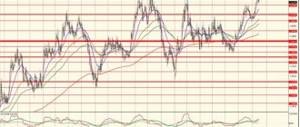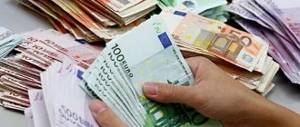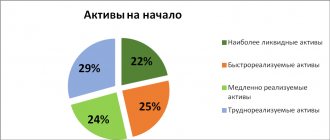Conference at the ECB meeting
The BoC's decision was hawkish, reducing Canada's weekly T-bill purchases to C$3 billion from C$4 billion previously was widely expected, but the revision to guarantees to keep rates at current levels until the "second half of 2022" versus "no earlier than 2023" says about a fundamental shift in BoS expectations. The growth of the Canadian dollar was strong in response to the BoC decision, but “one-off”, since the positive was balanced by a decline in oil due to progress in negotiations on the Iran nuclear agreement. More broadly, the BoC's decision raises questions about the policy outlook for other central banks and whether other central banks will follow through by revising expectations on the timing of rate hikes as they begin to wind down their QE program. This primarily concerns Fed policy, since BoS Chairman Macklem directly indicated that the revision of BoS forecasts based on stronger growth in the Canadian economy was due to stronger growth in the US economy, which leads to an indirect conclusion that the revision of Fed policy is not for mountains.
Today, market participants' attention will be focused on the ECB meeting. An accompanying statement from the ECB will be published at 14.45 Moscow time, Lagarde's press conference will begin at 15.30 Moscow time. Market participants' expectations for a reduction in the monthly size of purchases of government bonds of the Eurozone countries within the framework of the RERR program from the 3rd quarter increased after the hawkish decision of the VoS, but the ECB is unlikely to be ready for a discussion on the topic of curtailing the RERR program, because the Eurozone GDP for the 1st quarter is expected to be negative in many Eurozone countries The strict isolation regime continues. The ECB will not give new signals until the June meeting with new economic forecasts, not to mention the fact that the ECB should soften the reaction of the Eurozone debt market to the future beginning of the tapering of the Fed's QE program. It is more likely that markets will be disappointed by the outcome of the ECB meeting, which will lead to a fall in the euro.
You should also pay attention to the publication of weekly unemployment claims in the US at 15.30 Moscow time, an immediate reaction to the report is not expected, because the markets will follow Lagarde’s rhetoric, but after the ECB press conference, attention will turn to the Fed meeting on April 28 and, with a drop in the number of applications on unemployment, the closure of dollar/euro long shorts will be more rapid in the event of a dovish outcome of the ECB meeting.
Economic data today: - 15.30 Moscow time weekly unemployment claims in the US. The labor market is now top of mind under the Fed's updated strategy, with falling bids favoring dollar gains ahead of the Fed's April 28 meeting. — 17.00 Moscow time for sales of housing on the secondary market in the USA. The report will adjust forecasts for US GDP growth in the 1st quarter. — 17.00 Moscow time Eurozone consumer confidence index. The report is unlikely to cause a market reaction, but is important for analyzing the economic situation.
Traditionally, at the ECB meeting there will be a conference on Skype starting at 15.30 Moscow time; those wishing to attend can do so through registration: omegaglobal.ru/conference/ Or directly via Skype: omegaglobal.ru/contacts/ You will be provided with one free conference for review with our capabilities.
Asset acquisition program increased by half a trillion euros
Following the meeting, the Governing Council of the European Central Bank (ECB) announced an additional increase in the current asset purchase program by another €500 billion, to €1.85 trillion. The regulator explained this decision by expecting a new decline in eurozone GDP in the fourth quarter of this year due to newly introduced coronavirus restrictions. In addition, the ECB on Thursday adjusted its macro forecast, shifting the higher pace of economic recovery in the euro area from 2021 to 2022.
At a meeting on Thursday, the European Central Bank expanded its Pandemic Emergency Purchase Program by another €500 billion, to €1.85 trillion. The program has been extended for at least nine months - until the end of March 2022 (before this it was assumed that it would end before the end of June 2021). It was said, however, that this measure will remain in effect until the regulator decides that the EU economy has recovered from the consequences of the pandemic. Let us recall that in June the ECB already extended the program for six months, then increasing its volume by €600 billion.
In addition, it is assumed that the regulator, as before, will buy back securities worth €20 billion monthly under the previous program (it will be terminated shortly before the start of the rate increase).
On Thursday, the ECB, as expected, left rates unchanged - for loans at zero, for deposits - at minus 0.5%, for margin loans - 0.25%.
Speaking at a press conference after the meeting, ECB head Christine Lagarde indicated that the newly introduced restrictions significantly limit activity in the euro area, which may again show negative dynamics following the results of the fourth quarter. The situation in industry remains favorable, but the same cannot be said about the services sector. Inflation, taking into account lower employment and falling business activity, also remains at a low level (at the end of November, the annual rate was minus 0.3%).
Overall, the impact of the pandemic on the economy in the medium term will be more pronounced than expected, Christine Lagarde said.
At the end of the third quarter, according to Eurostat, the euro area's GDP grew by 12.5% compared to the second quarter, in annual terms the growth was 4.4%. Let us recall that in the second quarter the decline was an unprecedented 14.8%, in the first - 3.3% (for comparison: even at the height of the financial crisis in the first quarter of 2009, the decline was 3.1%).
In general, for 2021, according to the updated ECB forecast, the decline will be 7.3% - after which the economy will grow
:
- by 3.9% in 2021 (an increase of 5% was expected in September),
- by 4.2% in 2022 (3.2%),
- by 2.1% in 2023.
Regarding inflation, the regulator’s forecast assumes that prices will rise
:
- this year by only 0.2%,
- in the next - by 1%,
- and by 2023 the figure will accelerate to 1.4%.
Saxo Bank unveils 'shocking predictions' for 2021
ING points out that “despite the increase in the volume of the program, the ECB did not exceed market expectations for easing its policy.” Experts note that the regulator probably expects that by the spring of 2022, vaccine distribution will overcome the crisis caused by the pandemic.
Tatiana Edovina
Broadcast of the press conference of ECB head Christine Lagarde
The head of the European Central Bank, Christine Lagarde, held a press conference following a meeting of the board of governors in Frankfurt am Main.
As Vesti.Ekonomika reported, at the end of the January meeting, the ECB kept the interest rate on loans at zero, the deposit rate at minus 0.5% per annum, and the rate on margin loans at 0.25% per annum.
The regulator also announced the first review of its strategy since 2003.
Text broadcast
Lagarde: Incoming data since our last meeting is consistent with our base case scenario of continued but moderate growth in the eurozone economy.
Lagarde: Weakness in the manufacturing sector remains a drag on eurozone growth.
Lagarde: Continued, albeit slowing, employment growth and rising wages continue to support the strength of the eurozone economy.
Lagarde: While inflation remains generally subdued, there are some signs of a moderate acceleration in core inflation in line with expectations.
Lagarde: Unwinding monetary policy measures support favorable financing conditions for all sectors of the economy.
Lagarde: In particular, looser borrowing conditions for companies and households are supporting consumer spending and business investment.
Lagarde: Easier borrowing conditions will help grow the eurozone economy, build up domestic price pressures and thus bring inflation steadily closer to our medium-term target.
Lagarde: In light of the continued outlook for subdued inflation, monetary policy must remain highly accommodative for an extended period to support underlying inflation pressures and inflation developments over the medium term.
Lagarde: We will closely monitor inflation dynamics and the impact of unfolding monetary policy measures on the economy.
Lagarde: Forward guidance on rates will ensure that financial conditions are adjusted in line with changes in the inflation outlook.
Lagarde: The Governing Council remains prepared to adjust all its instruments, as appropriate, to ensure that inflation moves steadily towards its target, in line with its commitment to symmetry.
Lagarde: Risks to the eurozone's growth outlook from geopolitical factors, rising protectionism and emerging market vulnerabilities remain skewed to the downside but have become somewhat less pronounced as some of the uncertainty surrounding international trade subsides.
Lagarde: Credit growth to companies and households has remained stable thanks to the continued support provided by our expansionary monetary policy, which is reflected in very low bank lending rates.
Lagarde: A sufficient degree of monetary stimulus is still needed to keep inflation moving steadily towards levels that are below but close to 2% over the medium term.
Lagarde: To reap the full benefits of our monetary policy actions, other policies must more decisively support long-term growth potential, supporting current aggregate demand and reducing vulnerabilities.
Lagarde: The implementation of structural policies in the euro area must be significantly strengthened to improve productivity and growth potential in the euro area, reduce structural unemployment and improve resilience.
Lagarde: The Governing Council welcomes the Eurogroup's December call for a differentiated fiscal response and its willingness to coordinate action.
Lagarde: Governments with fiscal space must be prepared to act effectively and in a timely manner. In countries with high public debt, governments need to pursue sound policies and achieve structural balance targets.
Lagarde: Trade is actually an important element in our thinking and in assessing downside risks. The US-China trade agreement has reduced uncertainty slightly, but the impact on a net basis for the eurozone remains to be assessed.
Lagarde: The role of the ECB and the European system as a whole is to ensure price stability, and one of the ways to achieve this goal is to ensure the growth of our economies.
Lagarde: We are going to look at a number of issues. The strategy review will include issues of price stability, inflation assessment, and communications with markets.
Lagarde: We will listen to people's expectations to better understand their concerns.
Lagarde: the multi-level system has proven its effectiveness, no questions about it.
Lagarde: Climate change is everyone's responsibility, no matter where he or she is fighting climate change and risks to biodiversity.
Lagarde: Work is underway in various departments of the ECB to include climate change in terms of risk assessment, models, forecasts, this work is ongoing.
Lagarde: Environment and sustainability are very important in our strategy review.
Lagarde: I'm worried about low rates because they are based on low growth. I would prefer much higher growth rates, higher rates. But this is not the situation we are in now.
Lagarde: We will look at the potential side effects of low rates as part of our strategy review.
Lagarde: We cannot act as we did in 2003. This does not mean that we have to change this, that and the other, but we must take a comprehensive look at the effectiveness of our monetary policy.
Lagarde: Two countries that have fiscal space are now seriously considering how to increase fiscal spending through their respective budgets. So there is progress.
Lagarde: On climate change, I know we will have a discussion about whether this should be the role of central banks. I also know the dangers of inaction. Failure to try already means failure.
Lagarde: We have good reason to believe that banks are well prepared for Brexit.
The broadcast has ended.
The ECB did not live up to market forecasts for a rate hike
The Governing Council of the ECB decided to introduce additional financial stimulus measures for the European economy to support it in the context of the spread of coronavirus.
The ECB management announced an increase of 120 billion euros in the volume of purchases of government bonds until the end of this year. As for the financial incentive, the decision remains the same - its effect will last for the required period and end immediately before the rate increase.
In addition, to provide instant liquidity, the ECB will expand the LTRO program, the terms of which will be more comfortable starting in June and continuing for 12 months.
The European regulator also raised the bar for the possible amount of borrowing in the LTRO program to 50% of available loans.
Market experts predicted a reduction in the interest rate, so the ECB's decision caused a sharp rise in the EURUSD pair by almost 90 points, however, this increase was almost immediately recouped.
Let us remind you that earlier the Fed and the Bank of England had already cut their interest rates at emergency meetings.
Market reaction in the euro/dollar pair to the ECB's interest rate decision











